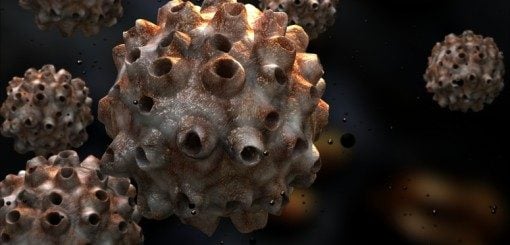While the leading causes of cancer are still smoking and sun exposure, there may be a third-leading cause called HPV, or human papillomavirus.
What is HPV?
HPV is a sexually transmitted disease that can present no symptoms, so you can be infected and pass it on to other partners without even knowing about it. HPV is transmitted through genital contact such as vaginal, anal, or oral sex, or even genital-to-genital contact.
How can it impact my oral health?
About forty oral and genital HPV strains exist. Oral HPV can cause oral warts and non-cancerous tumours. High-risk HPV strains can lead to oropharyngeal (mouth and throat) cancers. A very rare symptom is recurrent respiratory papillomatosis (RRP), where warts in the throat can affect your voice and breathing. Most HPV patients do not even display symptoms, however.
What can I do to avoid HPV-linked oral health problems?
The best ways to avoid HPV include getting an HPV vaccine and using protective barriers like condoms and dental dams during all sexual activity (while remembering that areas not covered can still transmit the disease). You can also avoid HPV by practicing good oral health, as inflamed gums, mouth sores, and oral health problems cause a higher infection risk. People with gum disease have a 51 percent higher rate of HPV than those without, and other dental issues are linked with a 28 percent higher HPV rate.
What oral health checkups should I get?
Aside from your scheduled dental checkups which monitor your gums and mouth for sores, inflammation, and other conditions along with the usual dental problems, sexually active adults should get VELscope and visual exams to check for HPV and oral cancer. VELscope exams detect oral cancers early when performed annually and identify areas that might progress into cancerous areas. VELscope exams are more thorough and specific than visual exams with a small flashlight.
I have HPV – what should I do now?
Most sexually active adults are infected with a strain of HPV at some point, given how common it is. HPV is not a serious STD on its own, but you should speak to your doctor to determine the strain of HPV you have. Genital strains may cause genital warts, cervical or penile cancers, and so on; oral strains are linked to oropharyngeal cancers, but this is relatively rare. If you have an oral strain of HPV, speak to your dental care provider about getting routine VELscope and visual exams to check for oral cancer and warts.
While HPV on its own is not serious, it is linked with several severe conditions. These oral conditions are rare, but it’s best to take a cautious approach and perform annual exams just to ensure that your medical care providers can discover and treat any problems as they develop.






